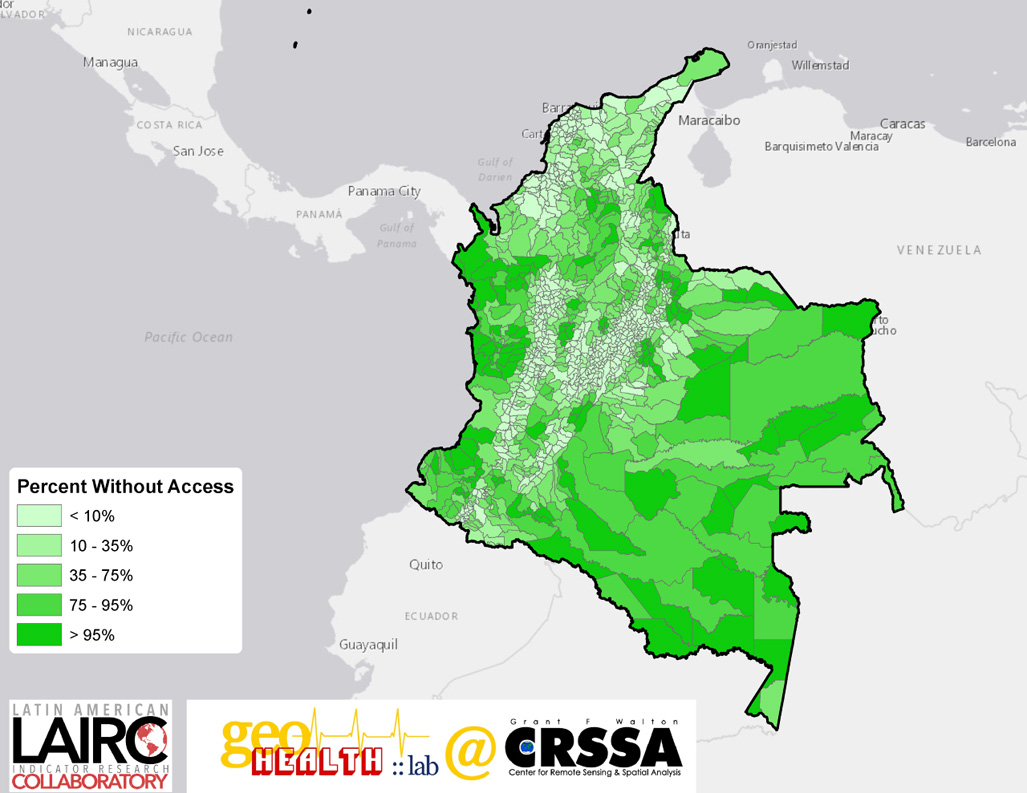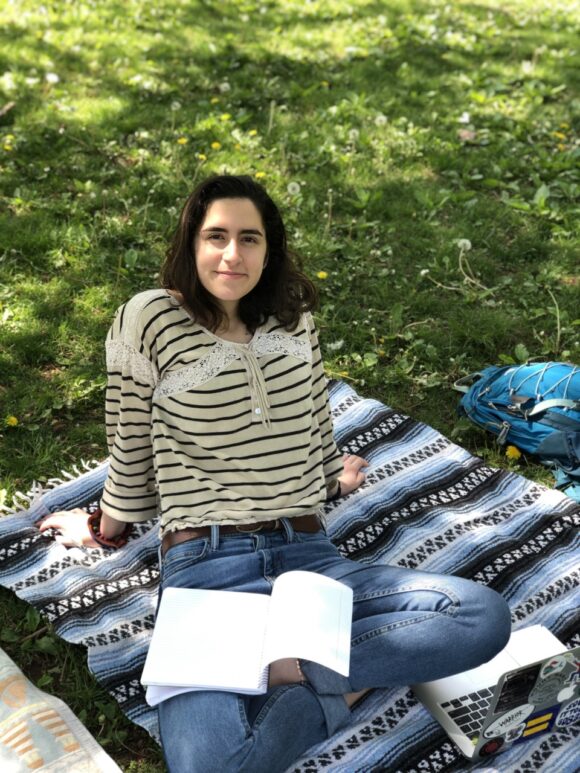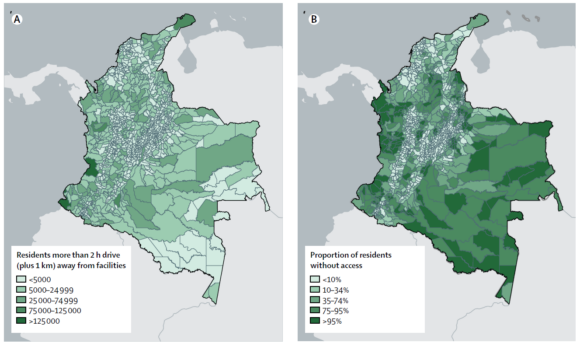
Honors student Nancy McKeon (SEBS’21), double major in Public Health and Environmental Policy, Institutions, and Behavior, is entering her senior year with a wealth of hands-on research experience connecting these two majors. “It’s impossible to view public health without taking into account the environment, both built and natural, and effective policy is critical towards bettering a community’s health.” But the icing on the cake was seeing that her work, mapping surgery-capable facilities in Colombia, South America, contribute to a paper in the prestigious journal, The Lancet Global Health.

Nancy McKeon (SEBS’21), double major in Public Health and Environmental Policy, Institutions, and Behavior.
Starting off at Rutgers, McKeon had not taken any geospatial technology classes, so mapping was still beyond her reach. But when she saw an honors seminar in “Making and Mapping Healthier Communities,” she jumped right in. The seminar was taught by David Tulloch, professor in the Department of Landscape Architecture, who integrates geospatial skills from his GIS research with the community-oriented perspective from his background in landscape architecture.
As McKeon explained, “it encompassed several topics that interested me. It was early on in my interest in public health, so I was eager to understand the different perspectives of the field.” But the seminar also included some initial mapping instruction. “I had no experience with geospatial skills, so I wanted to gain an introduction to those tools.”
One of Tulloch’s goals in the seminar each year is to model for students the ways in which integrating expertise from different disciplines produces exceptional outcomes. “They have heard the words multidisciplinary and interdisciplinary over and over,” he explains, “but to really learn it they need to do it and see outcomes that can’t be achieved otherwise.”
Building on those lessons, McKeon was not interested in waiting for research to find her. “After spending the summer after my freshman year conducting similar work focusing on environmental health at UPenn’s Center for Excellence in Environmental Toxicology, I came back to Rutgers hoping to find similar ways to involve myself.”
Motivated by a new understanding of “how one’s environment corresponds to one’s wellbeing,” McKeon asked about participating in research projects at the Grant F. Walton Center for Remote Sensing and Spatial Analysis. At the time, Tulloch and his lab group, called the GeoHealth Lab @ CRSSA, were exploring the potential for mapping access to hospitals in the South American country of Colombia. McKeon jumped right in.
The work in Colombia is led by a research partnership that includes Joseph Hanna and Gregory Peck, global surgery faculty at Rutgers Robert Wood Johnson Medical School, but also includes other Rutgers contributors and Latin American academics and clinicians. Hanna and Peck first reached out to Tulloch and the GeoHealth Lab seeking help mapping out Colombian hospitals.
McKeon helped with the development of the dataset and improvement of location data for those hospitals capable of three Bellwether surgeries. But as the collaboration developed, the mapping expanded to create estimates of two-hour drive boundaries around the hospital locations. Ultimately the project produced a nationwide assessment of the surgical system readiness supported with mapping across more than 1,000 municipalities representing six different measures of capability.
Over a few years, the collaboration of dozens of medical students, graduate students, faculty and clinicians contributed to completing the work, one of the highlights of which was the publication of the 21-author research paper in The Lancet Global Health.
 For McKeon, having helped map some of the hospitals and two-hour drive access was a meaningful step. “Seeing the final product of this project appear in the Lancet and have my work be acknowledged was rewarding.” In addition to seeing the data get transformed into a paper, McKeon also saw how “team science” can work, as she observed how creative collaboration crossed boundaries of disciplines, universities and countries, thereby teaching her lessons that may shape her own research over the coming years.
For McKeon, having helped map some of the hospitals and two-hour drive access was a meaningful step. “Seeing the final product of this project appear in the Lancet and have my work be acknowledged was rewarding.” In addition to seeing the data get transformed into a paper, McKeon also saw how “team science” can work, as she observed how creative collaboration crossed boundaries of disciplines, universities and countries, thereby teaching her lessons that may shape her own research over the coming years.
The potential impact is significant, explained Peck. The combination of mapping, population studies and surgical facilities improves our understanding of the health of a population and informs policies that can directly improve the health of communities. Peck, who has spent nearly a decade working with Colombian hospitals to improve their surgical plans explained, “The Colombia Ministry of Health can look at our findings to develop a comprehensive, nationwide health care plan.”
This summer, McKeon is interning at the EPA Headquarters within the Climate Policy Branch of the Climate Change Division, conducting data analysis on the greenhouse gas inventory. But having experienced making a real impact and developing an impressive skill set, McKeon’s future looks bright. With one year of school left, she is thinking about what to do after college, “potentially enrolling in a Masters of Public Health or joining a program such as the Peace Corps or Fulbright Scholars.”

